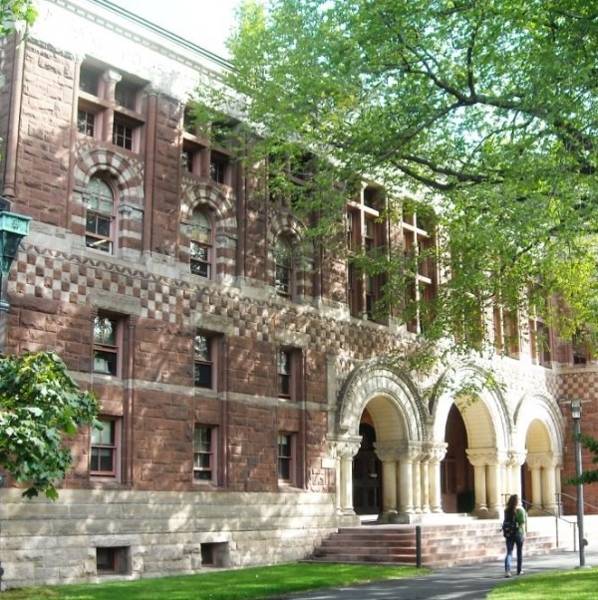 When Education Secretary Michael Gove announced his free schools programme and his proposed expansion of the academies programme, the Guardian asked me to describe the sort of school I’d set up. I wrote it as a joke, since I’m known as a strident opponent of academies, of which so-called free schools are simply an extension.
When Education Secretary Michael Gove announced his free schools programme and his proposed expansion of the academies programme, the Guardian asked me to describe the sort of school I’d set up. I wrote it as a joke, since I’m known as a strident opponent of academies, of which so-called free schools are simply an extension.
I’m against them, as I argued in my book The Great City Academy Fraud and in the pages of this magazine, because I think they’re just a way of taking control of state schools out of the hands of parents, children and the local community, and putting it in the hands of businesses, charities or – most frequently – churches and religious organisations. They have proved a lifeline for the Catholic Church and the Church of England, and may do the same service for orthodox Jews, Muslims and Sikhs, because they enable religious organisations to lay their hands on millions of pounds of public money for the purpose of indoctrinating the next generation.
We humanists do not believe in faith schools – we think children of all faiths should go to the same school, and all the religious traditions there should enrich each other. But still, faced with the challenge, I set to work with a will. I started to write down all the things I’ve learned in a lifetime of attending schools, writing about schools, sending my children to schools, and believing that schools matter more than almost anything else. Admissions criteria, the teaching of reading, the relationship with parents, discipline – the list kept growing, until I gradually became quite enthusiastic about the school. It would be broadly tolerant, liberal but firm. The boundaries would be drawn widely, but they would be fixed. Cross that boundary and the sky falls in on you. Our staff would have better things to worry about than the length of their pupils’ hair, and there would be no uniform. But any form of bullying or abuse would not be tolerated. And neither would boring lessons. We can’t divorce ourselves from the target culture, but we can make sure it doesn’t ruin the lives and the learning experience of our pupils.
Once they published my vision of the perfect school, all sorts of people started writing in to the Guardian website in response. Some approved; some added ideas of their own; and a few wrote to say how disgusted they were that atheists were shamelessly pushing their ideas – which was even more encouraging.
I’d already read in New Humanist that Michael Gove, who belongs to the Church of Scotland, had told Richard Dawkins he wasn’t opposed to the idea of a humanist school. But even more interesting was the email I received from Rachel Wolf, who runs the New Schools Network, and with whom I’ve debated on television. Rachel Wolf used to be Michael Gove’s political adviser, and the New Schools Network is there to help make his policies work. They show you the hoops you have to jump through in order to unlock money from Michael Gove’s budget. That’s not how she puts it, of course. Their website says: “Setting up a school isn’t easy – but we aim to make it as easy as possible. You can find here our preliminary guides to help you understand the process and start collecting support.”
Rachel wanted to know whether her organisation could help me make the idea a reality. Should I have written back and said: “Rachel, it was a joke”? She knew that, of course – she’s very far from being stupid. She also knows about The Great City Academy Fraud, and she knows I think she’s in the business of privatising state education and taking it away from the parents and the voters who ought to be controlling it.
We met for coffee at Carluccio’s on the new St Pancras station, and she told me what you had to do, and how she could help. They know the areas where there is a demand for school places, she said. They mean demand, not shortage, which is one of the worst aspects of the thing: you can end up setting up a school with government money to compete with an existing school and take away its pupils – a ludicrous way to spend public money.
So once you’ve established your “market”, how do you put your project into action? First, you set up a Trust, to include people with expertise not just in education but also in law and accountancy. You specify your area, write your proposal, make your business case – and nice Mr Gove will then give you the money to make your dream school come true. Of course, the reality is nothing like that simple. That’s why most providers either fall back on their own well-oiled machinery, like the Catholic Church, or hire one of the many companies that have been set up to make money out of the public sector.
So why on earth would we want to have anything to do with it? Here’s why. We campaign for secular education. This is not the way we would have chosen to have it, but it’s the show that’s in town. It’s a one-off chance to show that real secular state education works. And unlike the more standard academies, we certainly wouldn’t use it for all those grubby purposes that attract religions. Other faith schools have agitated for, and been given, the right to discriminate against teachers and pupils who are not of the correct religion. Our teachers’ faith will be their own affair, and we will not demand proof of religious orthodoxy from prospective pupils. No spying to find a prospective parent guiltily sneaking into church. No demanding evidence of a subscription to New Humanist. Personal letters confirming faithlessness from Richard Dawkins himself will get you nowhere. Even being the object of a fatwa will not get you in. If we are over-subscribed – which I confidently expect we will be – we will take pupils strictly on the criterion of proximity to the school.
Other faiths like to lock their children away from external influences, and faith schools have mushroomed: religions now control one third of all state schools. We can’t beat them – not yet, anyway – so we’re joining them – temporarily.
Academies and “free schools” are a passing educational fad. New Labour and Conservative education secretaries like to pretend they will solve all the problems. Actually, messing around with the ownership and control of schools solves nothing. They’re just one manifestation of the New Labour political syllogism: “Something must be done. This is something. Therefore this must be done.”
Until they fade away, though, we need to seize the opportunity they offer, even if it means co-operating with an objectionable and reactionary educational policy.
The choice is stark. We can hold fast and firm to our principles: that faith schools are intrinsically bad, that academies are a way of squeezing the democratic life out of our school system, and we should have nothing to do with either. And that will get us nowhere.
Or we can go into it with our eyes open, knowing the danger, and see if we can use the system to make something that most of the creators of the system will hate. And the more successful it is, the more they will hate it, for its success will prove that you do not need God to make a good school. Take God out of the classroom, and children grow up with at least as good an idea of morality as in any faith school – better, because our school will not be tribal, will not teach them to hate those of other faiths; because they will learn that behaving well towards others is a good in itself, not just a handy way of avoiding hellfire.
And when the academies system doesn’t work – when the iron control established by the various religious evangelicals ceases to be fashionable, and academies give way to some more sane way of organising our education system – the humanist school will still be there, ready to take its place among the family of schools.
If enough fellow humanists and atheists think the same, maybe we should get together and try to make it work.
Do you think atheist schools are a good idea? Would you be interested in getting involved in setting up a humanist academy? Potential supporters can write to Francis Beckett, c/o editor@newhumanist.org.uk.
Response: Rabbi Jonathan Romain of the Accord Coalition explains why Francis Beckett is wrong to fall into the faith school trap
You can also join the debate by commenting on this article, and by voting in the poll below.

